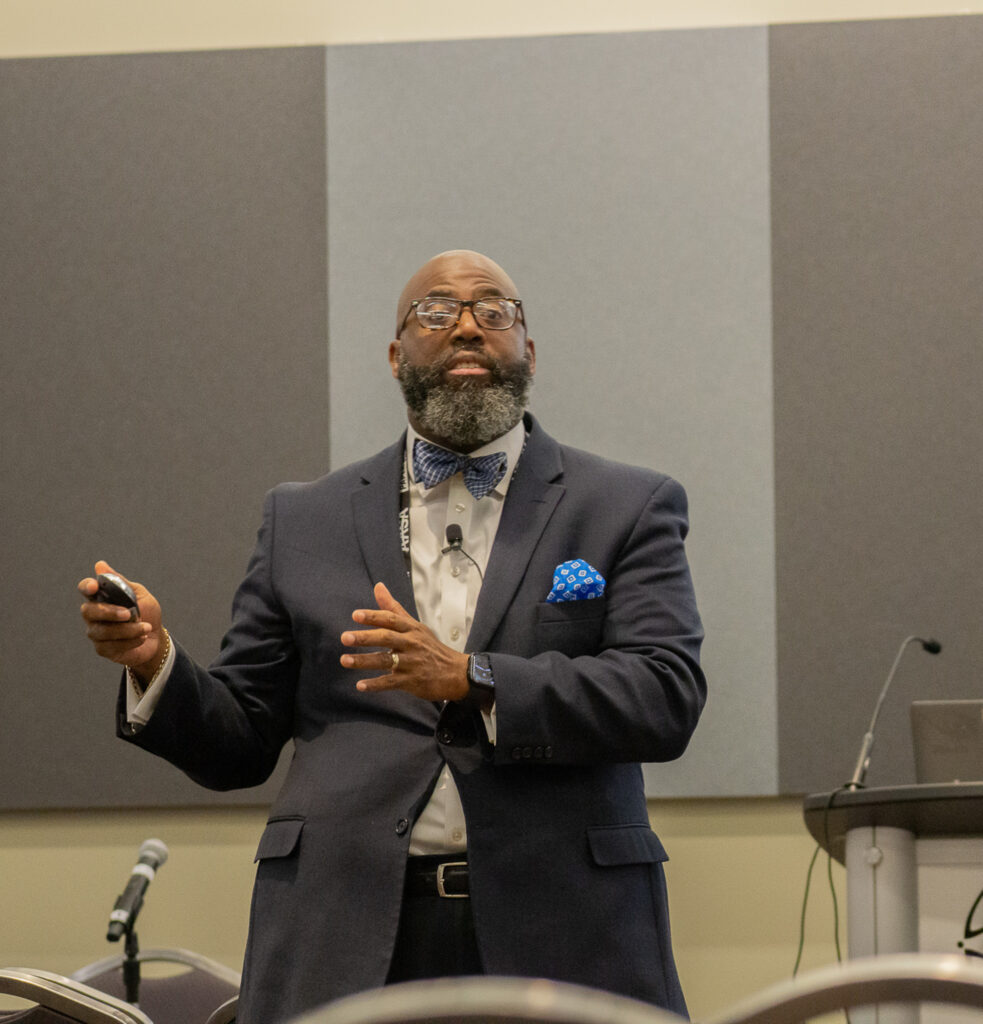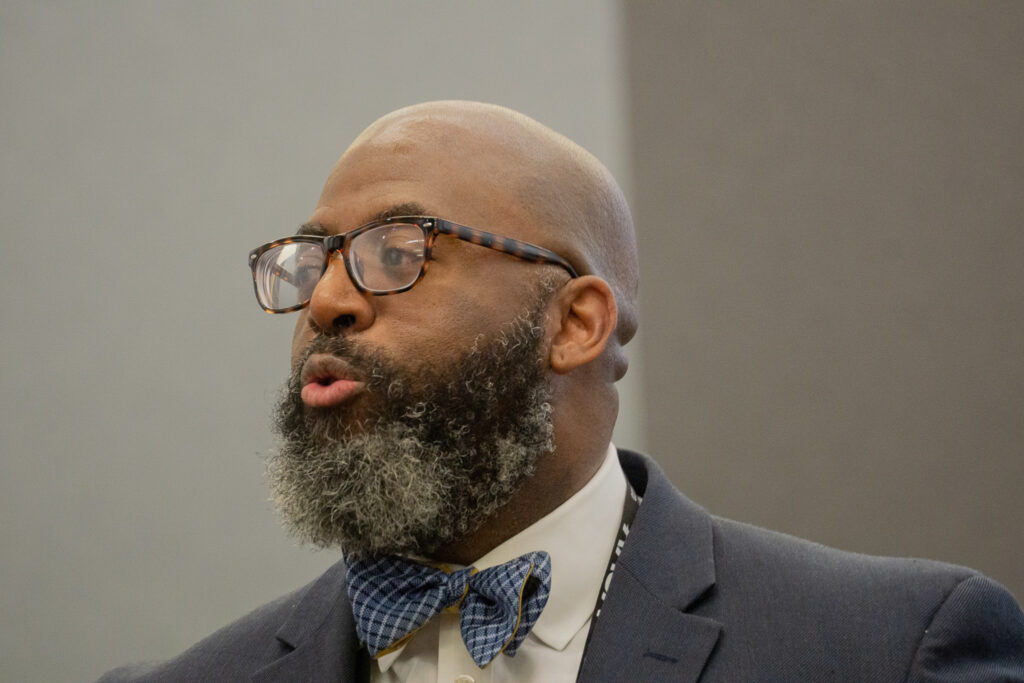School leaders were urged Saturday to work aggressively to raise the representation of Black and other non-white males to bring better representation to classroom teaching positions for the sake of students’ futures.
At an AASA conference session “A Movement Not an Initiative: Empowering the Next Generation of Black Male Educators,” Baron Davis, former superintendent of Richland School District 2 in South Carolina, described his efforts that resulted in a significant increase in the Black male teaching population in his schools in recent years.

Davis initiated the Premier 100 movement in Richland in fall 2019. The primary goal of the movement was to recruit and retain 100 men of color into the school district within four years, which he said would lead to empowering students. He said he began this work as a result of personal experiences in high school, where his college adviser pushed him away from a higher education path until a Black counselor stepped up and showed Davis the possibilities.
“Mr. Cleveland brings me in, shows me, talks to me about Pell Grants, talks to me about student loans. And he says to me, ‘If you're going to finance anything in your life, finance your education. It will always pay dividends,’” Davis related. “So, Mr. Cleveland kind of became my ‘why.’ I went into education to right a wrong. I didn't want any other student to have that experience that I had, that someone tell them that they can't do anything.”
This was his driving force, what pushed him to establishing the Premier 100 movement. And, as the title of the session indicated, this wording is highly important for Davis.
“We need to take this from the period of, or the state of an initiative to be a movement,” Davis said. “[Because] I’ll be completely transparent and completely honest — I'm getting the feeling that this is becoming a fad.”
Long-lasting impact of this movement is evident in the data. According to Davis, having men of color in a school can reduce the dropout rate of Black boys by 39 percent, raises college aspiration by 19 percent, improves social emotional behavior outcomes for all students, lowers suspension rates and improves attendance overall. Not only this, but having more representation can help to reduce the cultural gap in schools, and enable students to become better citizens of the world.
“What we need is a movement that changes both people and institutions,” said Davis. “When we do that, we have a revolution, and that's what we're aiming for. We're aiming for sustainable change. The revolution is going to shake up the way our students … have their educational experience. It's not at a replacement of anyone in the classroom, it's an addition to the classroom experience.”
(Angelina D’Elia is a reporting intern with Conference Daily Online and a sophomore at Trinity University in San Antonio.)

